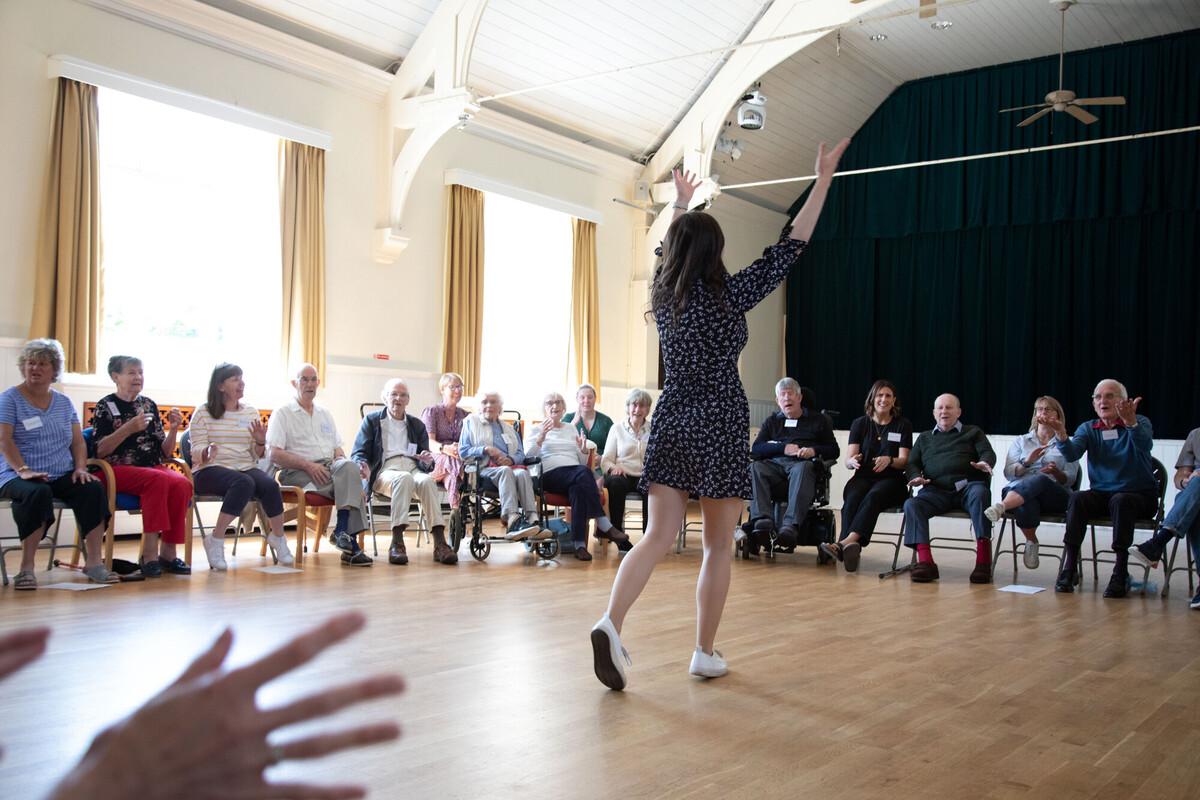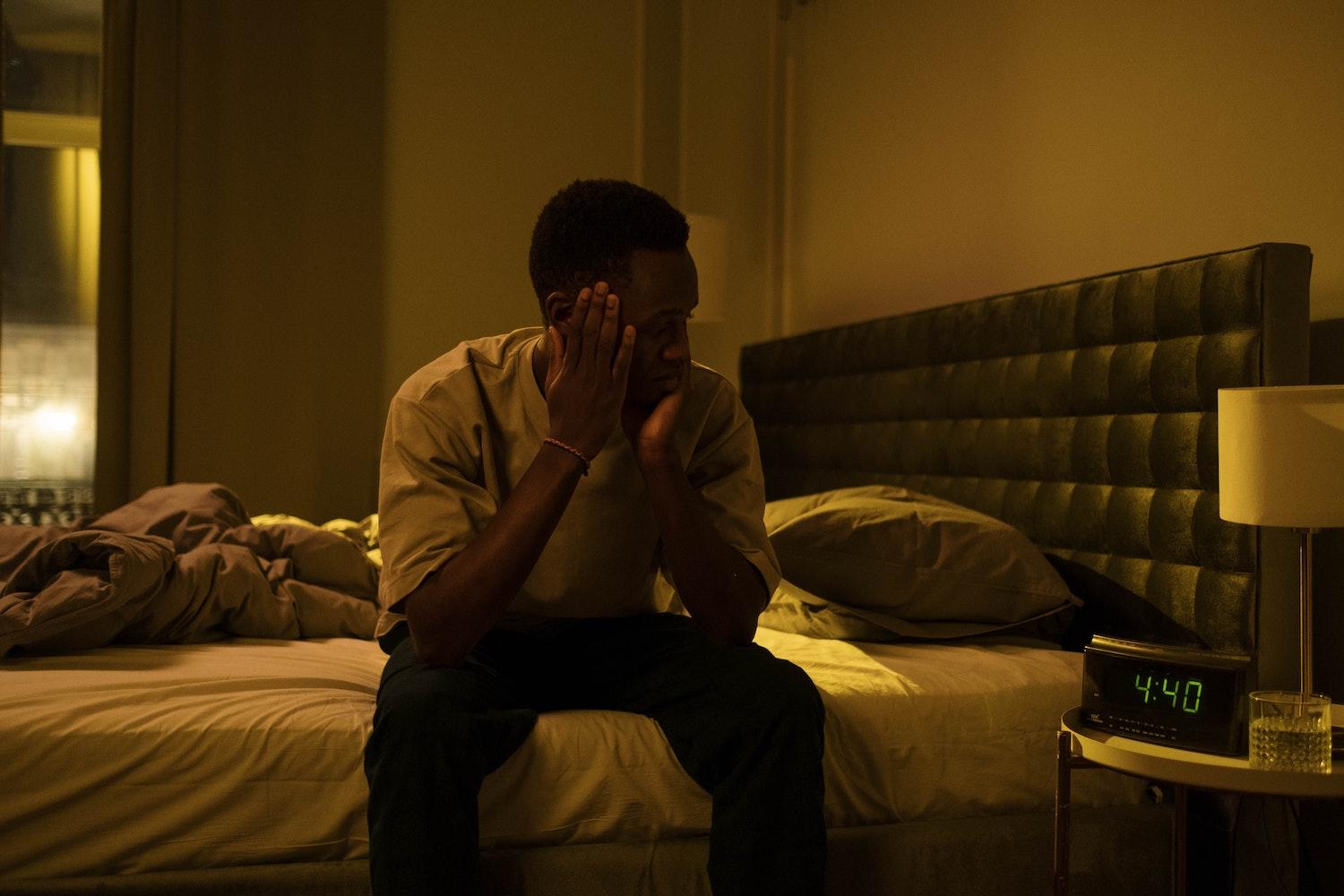
The process of coming to terms with a stroke diagnosis can be similar to grief or bereavement. This is true for the stroke survivor and their family.
The process of coming to terms with a stroke diagnosis can be similar to grief or bereavement. This is true for the stroke survivor and their family.
Having a stroke changes your life in an instant. Coming to terms with this can be difficult.
Grief isn't just something you feel when you lose someone. It can be something that you go through when you experience any major change.
This includes receiving a new life-changing diagnosis, like a stroke.
I think we all grieve for the person we were at some point and that's perfectly normal. I’m 6 years post-stroke which paralysed my left side and I still have days when I feel really sad and could cry on and off all day. I try not to go there but it’s not always easy. Susan_Jane
- Susan_Jane, forum regular
It can be helpful to use the five stages of grief to talk about how you process this kind of diagnosis.
The five stages of grief
This idea of five stages of grief was first developed by Elisabeth Kübler-Ross. She developed it based on her work with people facing terminal diagnoses.
It became the standard way for people to talk about different kinds of grief. Including the grief you may feel after having a stroke.
It's important to remember that people often go through the different stages multiple times. Some may restart the cycle if they have a setback or a new issue. Others will not.
Experiencing any of these stages is normal. If you feel like you have "got stuck" in one of them, speak with your doctor or talk to a mental health professional.
Stage 1: Denial
Denial is when your mind tries to reject what happened to you.
This could mean that you dwell on certain thoughts like "I never thought this could happen to me." Or it could be that you refuse to accept help or use aids to perform daily activities, insisting on doing these yourself.
Stage 2: Anger
You may spend a lot of time feeling that it isn't fair that you had a stroke. Or finding that small setbacks trigger far more anger than they would have before.
This can be complicated by the fact that some people find that their emotions are closer to the surface after their stroke.
Stage 3: Bargaining
Bargaining is when you try to make a deal with your body or a higher power. For example, thinking that if you could just move your leg more then you could handle everything else.
It can also show up as wishing that things had gone differently with your treatment or diagnosis. You might spend a lot of time thinking that if your doctor had seen you sooner, you wouldn't have a particular symptom or disability.
Stage 4: Depression
This is very common among stroke survivors. As many as one-third of survivors experience depression.
In this case, the word "depression" means a deep sadness rather than a medical diagnosis of clinical depression.
You may feel that your life will never improve or that you are a burden. Speaking with other stroke survivors about their experiences can help with these kinds of thoughts and feelings.
If you think you are experiencing something more like clinical depression or cannot seem to move past it, please seek help. There are many organisations and mental health professionals who can help. You can find more information here.
Stage 5: Acceptance
This is not the same thing as giving up.
Acceptance is understanding that your stroke is part of your new normal, even if you aren't happy about it.
You can accept that you had a stroke and still work on your recovery.
There's a description of grief made by Dr Lois Tonkin that you may find quite helpful here. She refers to the idea that over time, your grief over something does not reduce. But rather that your life grows to accommodate this grief. You can read more about her model here.
What can I do to help myself?
"My advice is to take some time to absorb the news & also start to prioritise you. It’s a lot to absorb & it changes your life in an instant. Use the time you now have to absorb what’s happened & then think about how you move forward." Mrs5K
- Mrs5K, forum regular
In addition to following Mrs5K's advice, there are things you can do to process your grief and move forward with your life.
- Set goals. These can be small things, like sitting up in bed for an extra 5 minutes every day. Or you can work towards bigger goals like making a cup of tea or walking to the end of your street. Make the goals achievable, but challenging.
- Keep a diary. This can help you track your progress. Sometimes your recovery will feel like it is going too slow. Keeping a diary or journal can help you see how far you've come.
- Connect with other stroke survivors. Talk to them about what you're going through. They have been where you are and will understand better than anyone. Our online forum and activities hub are great places to connect, as are local stroke clubs.
- Find something you enjoy doing. Maybe try a new hobby like bird watching or painting. Anything that brings a smile to your face will help.
When to get extra help
Although grief is a normal part of processing your stroke, it does not mean that you have to face this alone.
There are counsellors and other mental health professionals who can help you process your grief.
You should not have to feel stuck in a particular stage of grief, especially depression. If you think that you are stuck, please speak with your doctor or contact a mental health organisation.
Other blogs in this category

Community, connection and coping - support for your mental health after stroke
Having stroke can impact on your daily life, relationships, and…
Learn more

Struggling with sleep? You're not alone
Getting enough sleep is an important part of stroke recovery.…
Learn more
